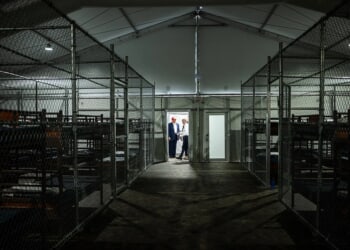“Never mistake law for justice. Justice is an ideal and law is a tool”
L.E. Modessit Jnr.
You could tell it was going to happen as soon as the verdict in the case of Ricky Jones – on jury trial charged with ‘ incitement to violent disorder’, came out.
It doesn’t matter who you are, or what you think, it is a longstanding legal fact that in a jury trial where 12 citizens are asked to determine beyond reasonable doubt the innocence or guilt of a defendant, after hearing evidence presented, then one potential outcome is that they return a verdict of ‘not guilty’.
It would not be a system worth having if that wasn’t the case.
The defendant in this case had pleaded not guilty, it turns out that despite the police arresting him, being charged by the CPS, in a court of law a jury agreed. Legally speaking no procedures were abused or short circuited, and he left the court a free man.
The real, armchair, and some politically active, lawyers, have made this point over and over again in recent days, and were joined by media voices, former MPs and many Labour MPs.
They are legally correct. The law is clear. Plead not guilty and be found not guilty, that’s the end of it.
Let’s just add before we go further that politicians are not, and shouldn’t, be able to interfere with the judicial process other than making laws in Parliament.
However, context is everything. Context adds in many ingredients that make this case interesting, and to some, profoundly worrying.
What I found utterly predictable, and even understandable – though legally different examples- was as soon as Ricky Jones was found not guilty, a sizeable number of politicians, commentators and the British public were going to claim that when compared to the case of Lucy Connolly here was proof positive that the justice system was biased and ‘two-tiered.’
Again, for avoidance of doubt lawyers and politicos were absolutely correct to point to why the cases weren’t comparable. In pleading guilty to a racist tweet in the wake of the grotesque Southport child killings Lucy Connolly had called for “mass deportation now” having believed false infomation that the murderer was an illegal migrant adding “set fire to all the f****** hotels full of the b******s for all I care”. Connolly, then a 41-year-old Northampton childminder, added: “If that makes me racist, so be it.”
The tweet did fall foul of the law; she pleaded guilty and was sentenced to jail. Those are the legal facts. That is the law.
The fact she pleaded guilty is key, because had she not done so, she would have faced a trial and the same scenario in the Jones case would have been available – the possibility of a ‘not guilty’ verdict. As it was, she was jailed for 31 months, lost an appeal against her sentence but is reportedly due to be released, early, soon. I suspect we will hear more from her when she is.
My point is, the two cases, that seem similar, and that went very differently for the defendants, were always likely to be directly compared, and what surprised me was anyone being remotely caught out that they have been since the Jones verdict.
Was it really credible in the context of a long running debate about “two tier policing” and “two tier justice” that they wouldn’t be compared? Was it not inevitable that a debate would shift to whether or not the Jones and Connolly cases were proof that such accusations are true?
In the current context of the debate around free speech it was just going to happen.
Wrong it may be, legally, but inevitable nonetheless because context is everything.
It certainly didn’t help that Connolly is the wife of a Tory councillor, and Jones was a Labour Councillor. It could be argued the cases had partisanship baked in.
The context has to include that before anyone but their close associates had even heard of Lucy Connolly or Ricky Jones, the concern, or even the question of two tier law and order was already out there in the public. The police were accused of it over Covid restrictions, and Gaza protests. In October 2023 I was in the Home Secretary’s office when the Metropolitan Police gave strong evidence that the accusation wasn’t true, we pointed out, however, that the perception that had been created was possibly more damaging than their facts.
In Connolly’s case the duration of the sentence raised eyebrows being more than double the length of a sentence handed out to a small boat migrant who sexually assaulted an “extremely vulnerable” teenager in public.
If it looks ‘unfair’ it can be very hard to explain why it isn’t. Or to persuade anyone who thinks it is, to listen, or even care much that it isn’t. You just won’t convince them like that. Telling them they are stupid, or racist, or ‘right wing’ is even worse. Listen, then ‘show not tell’ is the only way.
So fully accepting that legally speaking one shouldn’t compare them, but accepting ‘justice’ is an ideal and not the same as the law, I am going to make a few comparisons as to why I think people will continue raise the two cases, together.
Both incidents were a response to the same terrible crime, and public feelings that flowed out of that.
Both incidents happened in the very early months of a new Government finding its feet, and wanting to demonstrate they were ‘in charge’. Even though I accept they had no hand in either trial.
Both incidents occurred when a new party was surging in the polls, opposition parties had questions about freedom of speech, and were getting echoes in America from some quarters about these cases, and others around the concept of what is or should be, punishable speech.
Both incidents involved the concept of it being wrong and against the law to whip up people to an act that if carried out ran the very real risk of others ending up dead. Here the two cases seem almost indistinguishable. Why?
Because, both incidents involved very public evidence. Most interested people have read the content of Connolly’s tweet, which was shared before it was deleted, and most have seen the video of Jones making his remarks to a crowd of people – who applauded them.
Whilst far too many, who didn’t know much, or any, of the evidence presented at the trials of either, were still more than happy to comment either way on both cases, nonetheless a far larger group than just twelve people saw, and judged, the prima facie evidence that led to both cases going to court in the first place.
Both cases involved, legal judgement on the level to which a spoken, or written statement is intended in reality.
Remember the outcry over Paul Chambers and his 2010 tweet about Nottingham Robin Hood airport? He was found guilty of threatening to ‘blow it up’. His defence was in essence that ‘it was clearly a hyperbolic joke’ in frustration that he couldn’t fly to see his girlfriend as the airport was unexpectedly shut – the ‘threat’ within he argued, and many agreed, was not remotely meant to be serious. The conviction was quashed on appeal.
Both defendants provided evidence that there were extenuating emotional circumstances as to why they resorted to the language they did.
Connolly told the Court of Appeal she was “really angry, really upset” and “distressed that those children [in Southport]had died” and that she knew how the parents felt. The court had further heard that Connolly’s son died about 14 years ago, and that news of the murders had caused a resurgence of the anxiety caused by her son’s death. She insisted she had never intended anyone to murder anyone as the result of her tweet, which she deleted after three and a half hours.
She lost her appeal and is still in jail.
Jones told his trial that he’d been referring “specifically” to an incident where a ‘National Front Rights for Whites’ sticker had been stuck on a train with a hidden razor blade behind it. As a result he had felt “very emotional and very upset” after receiving pictures of the stickers the day before the rally. He twice expressed remorse, shame and also that he too never intended his words to be acted upon.
He won his case.
British history is riddled with court cases where some of the public didn’t understand how a jury came to the verdict they did. This is about an ideal of ‘justice’ not about the law. I actually think the British do people have an innate sense of what is ‘just’ and what isn’t. Some of them can be wrong, misguided, misinformed, politically driven even, but as a number of people commented last week these two cases boiled down to a simple belief (note, not a rule or law) that either both of them should be jailed or both shouldn’t, because to many the ‘crime’ seemed essentially the same.
The law doesn’t work that way, but feelings about it can, and my warning to those who want to deny that, is that if you ignore it, dismiss it, tune it out, you are making a bad mistake. At the very least you aren’t tackling it.
No the Conservative party, Chris Philp or James Cleverly are not arguing (nor should they) for the end of Jury trials – actually Robert Jenrick argued forcefully in Parliament this year that any attempt by the Labour Government to do so would be terrible.
However, you can see why they and others people asked the question that if both cases were examples of speech that fell foul of the law enough to bring arrest and charges why is one an example of punishable speech and the other not?
Legally we know the answer lies in how they pleaded. But it still leaves the question: how are the concepts inherent in both not the same and what does incitement really mean if one of the examples – apparently isn’t one?
It is possible to be deeply disquieted about both cases, their different outcomes and what that means for public confidence in the system, without challenging the legal process, advocating for any political ability to reverse judicial decisions, or challenging a jury process we should continue to support.
Even if I wasn’t someone who fitted that description, my prediction is still I think strong, that people will continue to look at both cases, and draw a conclusion the Government and the judiciary will not like.
Rightly or wrongly the debate about whether we currently have a two tier criminal justice system and within the body politic is most certainly not going away, and these two cases have probably made it louder not delivered some clever ‘mic-drop’ legal conclusion.
We’d be very unwise not to listen to those concerns; however we feel about strongly backing the rule of law.


![Man Arrested After Screaming at Senators During Big Beautiful Bill Debate [WATCH]](https://www.right2024.com/wp-content/uploads/2025/06/Man-Arrested-After-Screaming-at-Senators-During-Big-Beautiful-Bill-350x250.jpg)














